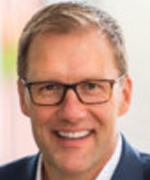The biggest issue facing anyone working in sales is trust, says David Horsager, a global trust expert and CEO of the US-based Trust Edge Leadership Institute.
During his presentation at the MDRT 2020 Virtual Event in August he outlined his eight pillars of trust saying that “…everything is built on trust”.
“Trust is the root cause and a leading indicator of everything else that’s lagging,” he told a global online audience of MDRT members. “The only reason you follow a leader is trust. The only reason we buy from a salesperson, unless it’s a commodity, is trust.”

Horsager defines trust as a competent belief in a person, a product, or an organisation, saying that every time trust has been seen to increase in an organisation, output and retention has risen.
“And costs, problems, and skepticism, goes down,” he said. “People love to be around and buy from people they trust. Nine out of 10 people do not refer products or services they don’t trust. It’s not a referral issue. It’s a trust issue.”
…If you’re selling the same way you were 30 years ago, I probably don’t trust you…
Horsager describes what he calls the eight pillars to trust, saying all organisational and leadership issues can be resolved once these are solved.
Clarity
People trust the clear, and they mistrust or distrust the ambiguous. They also mistrust or distrust the overly complex.
If you’re not clear about that financial product, or if you’re ambiguous, if you make it too complex, then I’m not going to want to buy it from you again – because I don’t understand it. You’ve got to make it clear.
Compassion
We trust those who care beyond themselves or have intent beyond themselves. If I believe you actually have good intent for me, care for me, I might put my money with you. I might be insured by you, I might want to spend with you.
Character
People trust those who do what’s right over what’s easy.
Competency
We trust those who stay fresh, relevant and capable. If you’re selling the same way you were 30 years ago, I probably don’t trust you. If you’re leading the same way you were 20 years ago, I don’t trust you. You have got to stay fresh, relevant and capable.
Commitment
We trust those who stay committed even in the face of adversity. If you think of anybody that’s left a legacy in your life, or in history, your mum, your dad, a school teacher, Mandela, Gandhi, Jesus, or Joan of Arc, then you’ll find somebody who was trusted by a large group of people, because they stayed committed to something beyond themselves, in the face of adversity.
Connection
We trust those who are willing to connect and collaborate, who are willing to think of others and embrace others. We don’t tend to trust people who are selfish or prefer to work in a silo.
Contribution
We trust those who deliver the expected and desired results.
Consistency
Consistency, this is sameness. We trust sameness. McDonald’s is trusted because you get the same burger in every store in the world. Consistency is king of the pillars.
Whatever you do consistently will be trusted. This is why we don’t like moody people. People like people who show up the same every single time. Consistencies are trusted. If you are always late, then people will trust you to be late.
Broken trust
Horsager also addressed the issue of rebuilding broken trust, saying that while an apology is a fair starting point, it’s what follows that matters most.
“You never rebuild trust on the apology,” he says. “It doesn’t mean you don’t need to start with an apology to open the door of conversation. The only way to rebuild trust is to make and keep a new commitment, you never rebuild trust without the commitment.
We say something on the farm, healthy things grow and sick things die. And it’s the same with relationships. Healthy relationships grow, sick ones become divided or divorced. Healthy companies grow, sick ones die.
“So you’ve got to put these trust pillars into your life, and in your business. So you can be healthy.
“You’ve got to do the work. And that’s the challenge with trust. It takes work, but it’s worth it. Because everything of value is built on one thing. Trust.”

